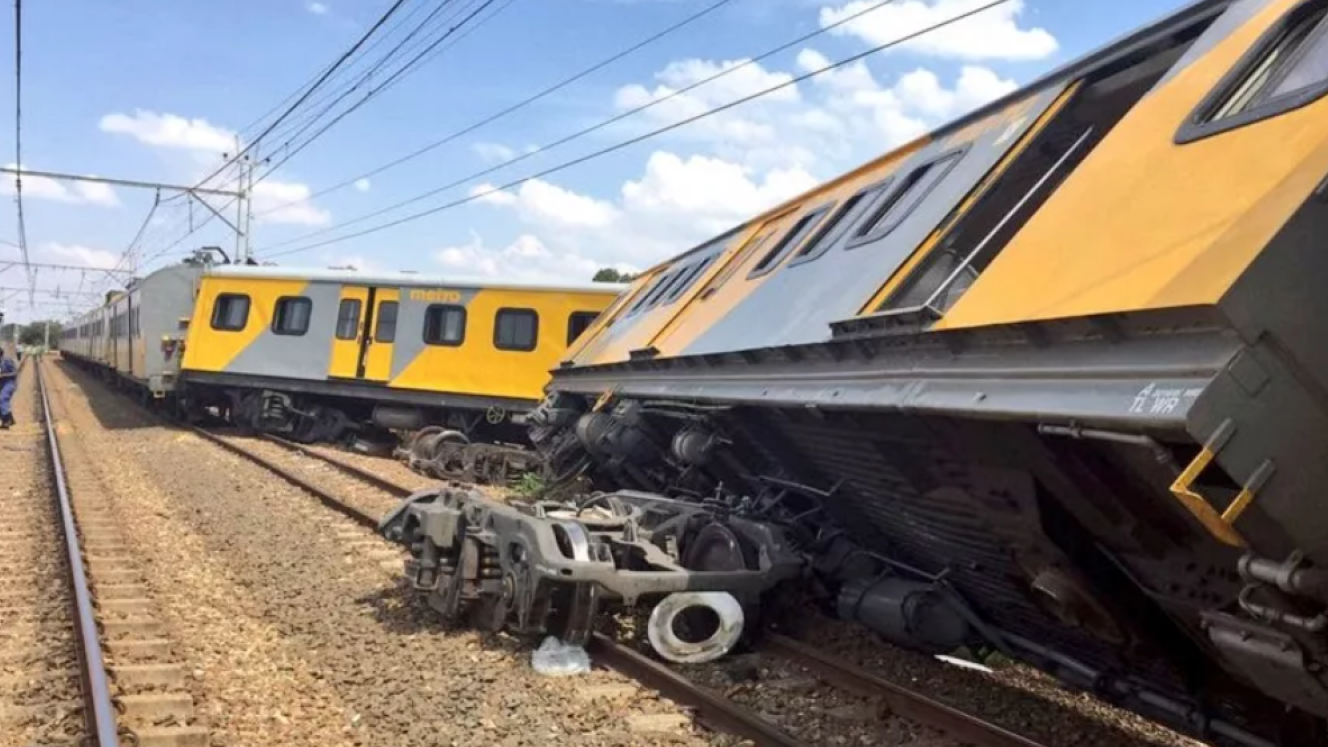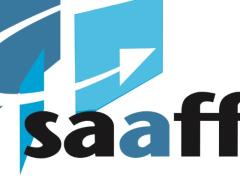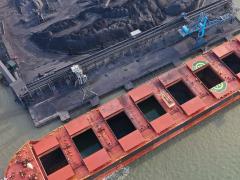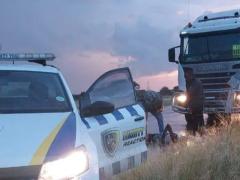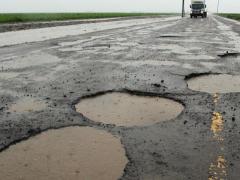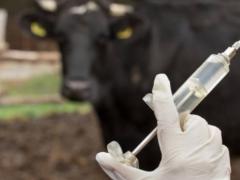A report by the Railway Safety Regulator (RSR) has established an increase of 36% in “operational occurrences” involving freight and passenger trains.
The State of Safety Report 2023/24 by the RSR more alarmingly reveals that 90% of the accidents were caused by the Passenger Rail Agency of South Africa (Prasa) and South Africa’s state-owned enterprise responsible for logistics, Transnet.
In the most recent edition of the Sunday Times, Dineo Faku reports that “there were 2 496 operational occurrences during the period under review, which resulted in 85 deaths and 181 injuries.
“There were also 7 420 security-related incidents, resulting in a further 74 fatalities and 98 injuries.”
The regulator noted 687 collisions and 278 derailments during the review period.
Acting CEO of the RSR, Mmuso Selaledi, explained to Business Times that incidents like derailments and collisions not only caused significant damage, loss of life, and injuries but also disrupted bulk commodity exports, as lines often had to be closed for days during clean-up operations.
Selaledi remarked that delays in getting products to ports and the extensive time needed to clear derailments—sometimes involving as many as 100 wagons—had a notable impact on mining companies.
The result was reduced profitability and delays in moving goods to ports for export. He also expressed particular concern about derailments in train yards, which were largely attributed to human error. He stressed that operators needed to maintain tighter control over their operations in these areas, and said the regulator was focusing on understanding the root cause of these incidents.
In Transnet Freight Rail’s 2024 annual report, it was stated that derailments during shunting operations had decreased by 13%, from 93 in 2023 to 81 in 2024. Mainline derailments saw a 5% reduction, from 85 in 2023 to 81 in 2024, with only one train-on-train collision occurring in 2023, down from three the previous year.
Selaledi mentioned that many derailments were caused by a failure to comply with train-watching rules. He emphasised that the regulator was working hard to better understand the causes of the 87 collisions and 278 derailments reported, and was providing guidance to operators accordingly.
He also pointed out that a shortage of locomotives, due to a stand-off with a Chinese supplier, had led to Transnet Freight Rail (TFR) operating trains with as many as 200 wagons, which increased the risks in the event of derailments or collisions. According to Selaledi, when a train pulling 200 wagons derails, as many as 80 to 100 wagons can be affected.
In January, TFR experienced a significant derailment following a collision between two coal freighters near Richards Bay. Selaledi expressed concern, stating that railway safety in the country had much room for improvement.
The RSR reported that there were 212 rail safety permit holders, including Transnet, the Passenger Rail Agency of South Africa (Prasa), and the Bombela Operating Company, which runs the Gautrain. TFR operates a 20 000km network, with six main corridors and thousands of kilometres of branch lines. These corridors include crucial routes such as the coal export line between Emalahleni and Richards Bay, and the 861km iron ore line from Sishen to the Port of Saldanha.
TFR shares its network with Prasa, which is undergoing a restoration process involving new rolling stock and refurbished stations. Prasa transports 40 million passengers annually, while other independent rail operators also use the network. The Gautrain operates its 80km intercity service between Johannesburg, Pretoria, Sandton, and OR Tambo International Airport on an international standard-gauge line.
An expert, speaking anonymously, highlighted the lack of investment in train safety systems, including signalling and telecommunications. They noted that Transnet’s rehabilitation and maintenance backlog would cost over R100 billion, with R150bn in debt and a R47bn government guarantee already used up. The expert added that theft and vandalism were persistent issues, and questioned why Transnet’s interventions had been consistently ineffective.
Private-sector security support on the North Corridor have proven effective, indicating that the problem is not purely one of funding or crime, but also reflects broader management challenges at Transnet. The expert suggested that the regulator needed independent funding to increase safety oversight, especially as third-party access to Transnet’s infrastructure expanded. They warned that without improved safety systems, third-party access could result in significant safety risks.
TFR reported a 5.4% rise in security-related incidents year-on-year, with cable theft accounting for 57% of the reported cases, significantly affecting train cancellations and tonnage losses. Selaledi said that Transnet and Prasa were under continuous attack from theft and vandalism, which had led to the loss of substantial portions of the network, including tracks, station infrastructure, overhead cables, and signalling equipment.
In addition to theft and vandalism, Selaledi noted that operators were also failing to meet maintenance requirements and invest in the network. Human error, particularly among drivers, train control officers, technicians, and supervisors, was contributing to the increase in accidents, often caused by fatigue from long working hours due to understaffing. Vacancies at Prasa and Transnet have led to staff working extended shifts, resulting in fatigue, which in turn led to mistakes.
South Africa’s regulatory environment is highly advanced, allowing for the accurate collection and reporting of statistics, something not matched by neighbouring countries or other African counterparts, according to Selaledi. He noted that these countries did not produce reports with the same level of detail and accuracy.
